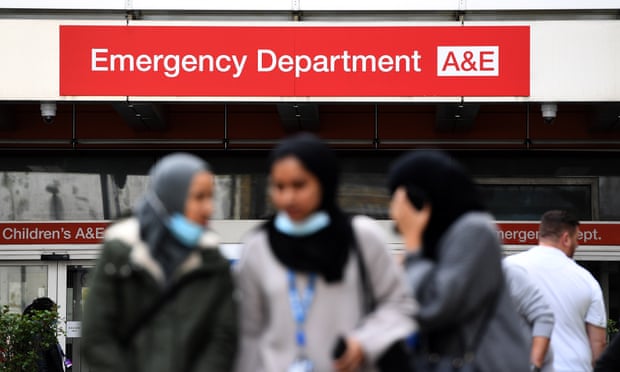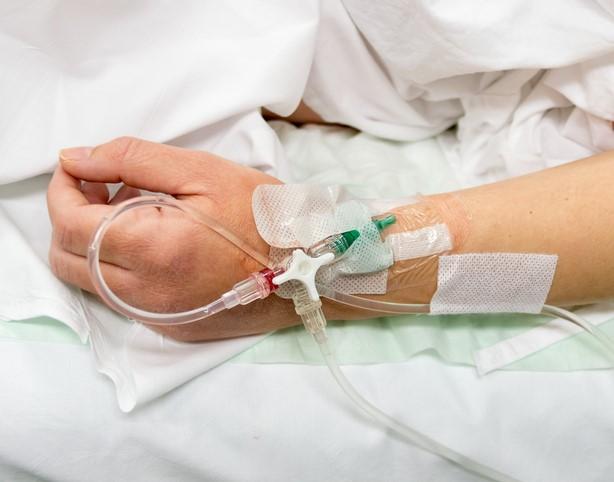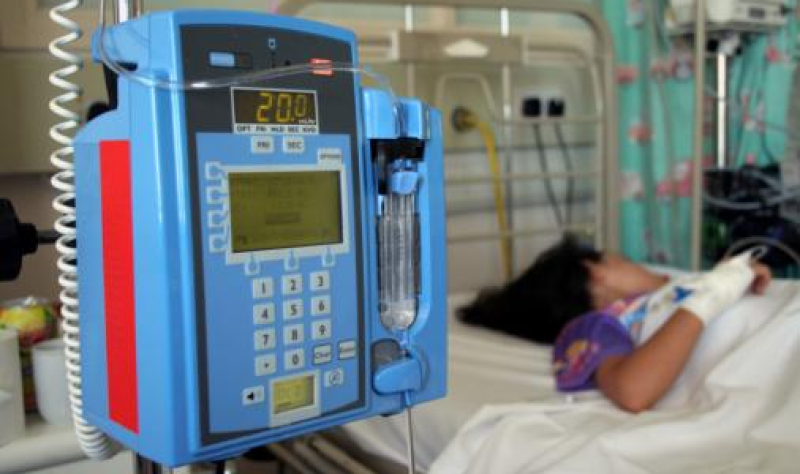‘There’s a feeling of powerlessness’: UK healthcare workers on rising Covid numbers

‘There’s a feeling of powerlessness’: UK healthcare workers on rising Covid numbers
As wards fill up, workers complain of staff shortages, long waiting times and lack of care in the community

Covid infection levels and hospitalisations are rising as the Omicron sub-variants BA.4 and BA.5 spread in the UK.
The total number of people in hospital in England who had tested positive for Covid stood at 11,878 on Thursday, an increase of 33% from the week before.
Here, five healthcare workers across the UK discuss the challenges of staff shortages, waiting times and the lack of care in the community amid rising Covid infections.
Paramedic, Midlands
Though we’re not seeing a huge amount of callouts for Covid, you’re aware that there are a lot of cases around and that the numbers are rising, just from seeing what’s happening inside hospitals. The numbers are going up in the wards.
Ambulance stacking is still a massive problem. There’s people in the back of ambulances for hours and hours. There’s been no change since winter – I suppose the only change is staff have gone from being shocked by it to just accepting it. Staff are demoralised, defeated – it’s really demoralising being stuck on an ambulance when you can see somebody’s getting more and more poorly. A lot of the people that we see are elderly people who’ve been on the floor a long time, and then they’re in the stretcher in the back of an ambulance for even longer.
There’s a feeling of powerlessness among staff – I can see why people are leaving. The other thing is the hours. All the shifts are 12 hours – if you’re sat in an ambulance for seven hours with the first job, getting more and more fatigued, then you hand over your patient, go to another job, you come back and you’re in an ambulance again for seven hours. And you can’t finish your shift until you’ve handed your patient over – Shifts end up over-running quite significantly.
Failed discharge has been increasing in the last six months. That’s really distressing – we’re seeing more people being sent home before they should be, so that the bed can be freed up and A&E patients can be moved on to wards – it becomes a vicious circle. People are suffering in that process.
A&E consultant, south-east England
We’ve got a huge issue with staff down with Covid – colleagues having to stay home. It’s become quite noticeable in the last month. We’ve still got two or three wards full of Covid patients, a steady state of between 60 and 100 patients with Covid, so it’s quite a strain on resources. It’s definitely not over.
Staff demoralisation is a big concern – we’re seeing a lot of A&E nurses leaving. It’s hard to recruit into the speciality and A&E nurses are very hard to replace – they’re not interchangeable with general nurses.
At the same time, we’ve never been busier – I’m witnessing scenes worse than I’ve ever seen. There’s a lot of moral injury, particularly for younger colleagues seeing people get such terrible care: loss of dignity, being left lying in the corridors, queues stretching down one corridor into the next. It’s horrifying.
Things have got visibly worse in the last month – attendances are high for summer, crowding is the worst I’ve ever seen it. The main issue is that we’ve got terrible exit block at the hospital – we can’t get people out who need social care. Any problems downstream manifest in the emergency department because you can’t get anybody into hospital.
These are things you don’t expect to see in summer, it’s a year-long bed crisis, which we’re not used to. There’s no let-up. Emergency departments are good barometers of NHS performance and waiting times are steadily ticking up – in January, they were around eight hours. Now we’re seeing up to 15-hour waits – it’s not safe.
Senior ITU sister, north-east England
We’re finding a lot of incidental Covid admissions, where patients have come in where Covid is not the primary reason that they’ve been admitted and we find out because of the screening process. They’re not as sick as they were [earlier in the pandemic], but then we’re not in the middle of winter. There’s a worry that we will have influenza in the winter season while we also have a chronic staffing problem to deal with. It’s like a tsunami in the distance.
We’ve got a very fatigued workforce – that’s at every level, not just nursing. We have high sickness rates associated with Covid because, obviously, if you’ve got Covid, you can’t be at work. So you’re in a downward spiral, trying to put more in with less to look after it.
There’s lots of staff who’ve been doing the job for a long time who probably are reconsidering the position now. Retention is a huge issue – there has to be a different solution to be able to retain your experienced staff. I think the workforce is more dilute in experience. There’s a lot of people who are fatigued now, and I don’t actually think they feel rewarded.
Hospital discharge worker, south-west England
Things started to improve in the discharge team about six weeks ago but now have slowed down again. We’re having issues with care homes accepting patients again – if someone is waiting for bedded rehabilitation, care homes won’t accept them while they’re positive or exposed by someone in a ward. Nothing is moving – there are also no carers in the community because of chronic staff shortages and rising Covid rates among carers. Patients are getting stuck for months, despite being fit for discharge. It has gotten much worse in the last two weeks.
Particularly in the last six weeks, there are nursing shortages on the ward. There’s just shortages every day. Rising Covid numbers are probably one aspect of it, but mostly it’s just shortage of nurses – there have been quite a few people who have left, sometimes moving within the NHS. Another big concern is the severe shortage of therapists – physiotherapists and occupational therapists are critical in discharge to assess patients’ needs.
Everybody is on their knees. Attendances are high for summer – particularly for older people and for older people who have experienced a real step-down in their cognition and their dementia. Over the winter, we’ve had a lot of patients who have obviously been isolated through Covid and whose dementia has really become extreme. They’re perfectly mobile and can function physically but have no capacity. Because there aren’t the therapy staff to rehabilitate them, they decondition whilst they’re in hospital.
Physiotherapist, Northern Ireland
I’m an agency physiotherapist working with end of life patients in the community, with patients who have been discharged from hospital, hospice, or who’ve had an end of life diagnosis. Before Covid, the waiting list used to be one or two weeks for routine appointments – now it can be four to five weeks. Some of these people may not have five weeks.
I think related to Covid as well, a lot of diagnoses are being made later. People are sicker quicker. Instead of people having months, they’ve got weeks, sometimes. It can be a number of things – it might be because they have a vulnerable person in their house, and they don’t want to put them at risk by going into hospital.
A lot of people are scared to go into hospital these days, too, because there are limited visiting hours. They don’t want to pass away in a hospital where they get to see their family member one hour, once a week.



